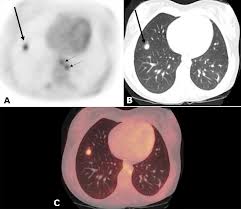Breast cancer remains a disease that can strike women in any age group. Despite the immense amount of ongoing research and new treatment modalities, the disease presents puzzles to researchers and treating physicians and enormous challenges to patients. Early diagnosis, accurate staging of the disease and prompt treatment remain the most important points. Breast self examinations on a regular basis are just one aspect. Mammography screening can pick up the disease earlier, and a biopsy of any suspicious area can tell more about the type of cells that cause it. A particularly aggressive type is inflammatory breast cancer. It is not characterized by a suspicious lump. The only symptom is diffuse redness and swelling in the breast of the patient.
This type of cancer can metastasize within six months. It accounts for 1 to 5% of all breast cancers in North America and has a five year survival rate of 25 to 50% of the patients. A team of researchers from the University of Texas M.D.Anderson Cancer Center in Houston led by Dr. Selin Carkaci examined a combination approach of high tech tests for early diagnosis and treatment. Dr. Carkaci pointed out that breast cancer is not a localized disease, but one that is systemic involving the entire body. Based on this knowledge 41 patients with the highly aggressive form of inflammatory breast cancer were examined with a combination PET/CT whole body scan. It was possible to identify cancer in patients’ lymph nodes with 98% accuracy. Early metastasis could be found in 49 % of patients.
PET/CT scan combinations detect cancer in its earliest stages, when changes are happening at the cellular level. Other tests like mammograms, ultrasound and MRI scans can only identify disease when there is destruction of the normal anatomy. The accurate depiction of the cancer within the body is important for an effective treatment plan. PET/CT combination scans are used in cancer diagnosis for a variety of tumors where distant metastases are expected (the image above shows a nodule in one of the lungs). It is especially significant for inflammatory breast cancer patients, where it offers a promise for earlier diagnosis resulting in more effective treatment plans.
More information about diagnosis of breast cancer: http://nethealthbook.com/cancer-overview/breast-cancer/breast-cancer-diagnosis/
Reference: The Medical Post, December 18, 2007, page 15
Last edited November 3, 2014






